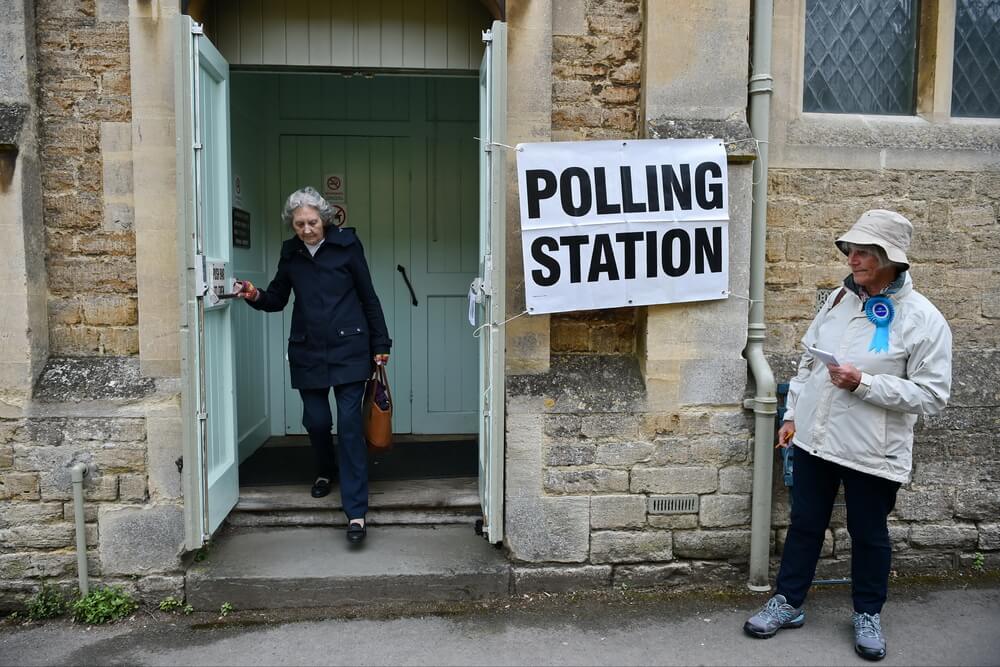Hope figured prominently in a speech by British Labour leader Sir Keir Starmer as his party embarked on an election year which looks almost certainly destined to return it to power.
In response to what he described as the understandable despair of a downtrodden country, Starmer offered “credible hope, a frank hope, a hope that levels with you about the hard road ahead, but which shows you a way through, a light at the end of the tunnel.”
High hopes, then. But also modest expectations, in line with the Labour leader’s current policy of saying as little as possible about what his party might actually do once in office.
Consistent opinion poll leads indicate that the opacity of Labour’s programme is not proving to be much of a problem among a weary electorate for whom the party’s main virtue is that it is not the Conservatives.
But what happens the day after Starmer enters Downing Street in the autumn, assuming Labour gathers a manageable working majority in Parliament?
The electorate’s main demands
Opinion polls indicate that among the electorate’s main demands is for a restoration of public services that have been undermined by both Conservative austerity policies and the impact of the Covid pandemic.
Hospital waiting lists, crumbling school buildings and mounting pressure on social care appear to have had more impact on voter intentions than the ruling Conservatives’ obsession with illegal immigration.
Faced with the prospect of inheriting a stagnating economy, Starmer already warned voters that there would be no funds available for income tax cuts
Yet, even on the first of these priorities there is no quick fix available, given Labour’s commitment not to spend beyond the country’s means. Ahead of the party’s annual conference last autumn, Starmer offered only a modest £1.1 billion to fund overtime within the hard-pressed National Health Service.
Labour said it would fund the spending by scrapping the non-domiciled tax status that spares some wealthy UK residents with homes abroad from paying UK tax on their foreign income.
The largely uncontentious reform would raise just £2 billion, which may turn out to be the only small change Labour finds at the back of the threadbare fiscal sofa if and when it takes the reins later this year.
Faced with the prospect of inheriting a stagnating economy, Starmer already warned voters in his New Year’s speech that there would be no funds available for income tax cuts in the short term while an incoming Labour government focussed on growth.
Where will the growth come from?
Having ruled out the prospect of a future Labour government spending its way out of the economic doldrums, where exactly will the much-needed growth come from?
Once again, Starmer and his team have been frustratingly vague, beyond announcing a £28 billion green prosperity fund that already risks being scaled back.
A December report from a left-leaning think tank influential within the Labour Party may offer some clues. The independent Resolution Foundation, together with academic partners, put forward a 10-point plan for Britain to escape a decade and a half of stagnation.
Point one was that Britain must build on its strengths as the world’s second biggest exporter of services after the US, while protecting the place of its high value manufacturing in European supply chains.
The overall message was that prospects were not totally bad, but that Britain’s position had been undermined by lack of public investment, particularly outside London, and by a growth in economic inequalities that had cut the earning power of the least well-off in real terms.
In the face of these inequalities, investment, benefits and taxes would have to rise.
 The election result will be determined by voter concerns closer to home
The election result will be determined by voter concerns closer to home
The report’s findings may not entirely reflect Labour’s current thinking, but the aim of reverting towards a more economically equal society is broadly in line with Starmer’s political sentiments.
The unique selling point that he is promoting to an increasingly cynical electorate is a return to more stable, responsible and indeed boring government after the dramas of the Conservative years.
There will be no short-term radical fixes. Relations with the UK’s European Union neighbours to improve in the absence of any significant move towards reversing Brexit.
Foreign policy issues
On foreign policy issues such as Ukraine and the Middle East, Labour’s stance will remain broadly in line with that of the current government.
The election result will, in any case, be determined by voter concerns closer to home. With months still to go before polling day, the anecdotal evidence from party canvassers on Britain’s doorsteps is that voters are more fixated with local issues than with the broader political trends at Westminster.
There is one initiative that Starmer could usefully have up his sleeve: restoring the power of local municipalities to improve the outlook in their neighbourhoods
Ahead of publication of its formal pre-election manifesto, there is one initiative that Starmer could usefully have up his sleeve: restoring the power of local municipalities to improve the outlook in their neighbourhoods.
The increasing powerlessness of cash-strapped local councils in the face of ever-increasing centralisation is one of the key factors in voter disillusionment with distant government.
After a series of municipal bankruptcies, Starmer pledged to reform local authority funding. The details are still pending.
Starmer’s pledge to shift power and control out of Westminster and back into the hands of communities may not be his biggest pre-election headline grabber. But diverting whatever investment funds are available from the centre to the periphery could provide a key to reinforcing a first Labour term.